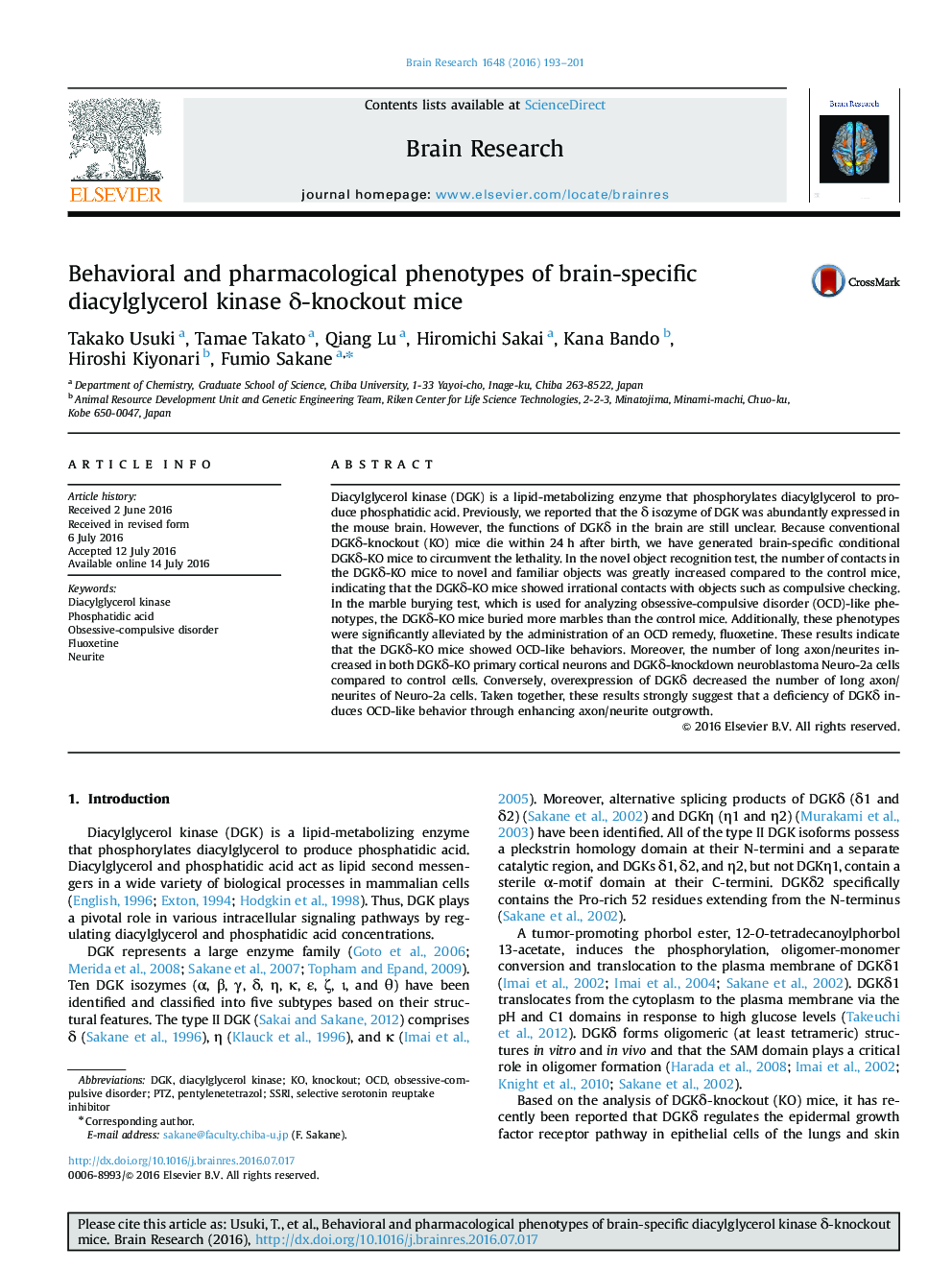| کد مقاله | کد نشریه | سال انتشار | مقاله انگلیسی | نسخه تمام متن |
|---|---|---|---|---|
| 6262351 | 1292351 | 2016 | 9 صفحه PDF | دانلود رایگان |

- A brain-specific diacylglycerol kinase (DGK) â¢-knockout (KO) mouse was generated.
- The KO-mice showed obsessive-compulsive disorder-like behaviors.
- The numbers of long axon/neurites increased in DGKâ¢-KO primary cortical neurons.
Diacylglycerol kinase (DGK) is a lipid-metabolizing enzyme that phosphorylates diacylglycerol to produce phosphatidic acid. Previously, we reported that the δ isozyme of DGK was abundantly expressed in the mouse brain. However, the functions of DGKδ in the brain are still unclear. Because conventional DGKδ-knockout (KO) mice die within 24 h after birth, we have generated brain-specific conditional DGKδ-KO mice to circumvent the lethality. In the novel object recognition test, the number of contacts in the DGKδ-KO mice to novel and familiar objects was greatly increased compared to the control mice, indicating that the DGKδ-KO mice showed irrational contacts with objects such as compulsive checking. In the marble burying test, which is used for analyzing obsessive-compulsive disorder (OCD)-like phenotypes, the DGKδ-KO mice buried more marbles than the control mice. Additionally, these phenotypes were significantly alleviated by the administration of an OCD remedy, fluoxetine. These results indicate that the DGKδ-KO mice showed OCD-like behaviors. Moreover, the number of long axon/neurites increased in both DGKδ-KO primary cortical neurons and DGKδ-knockdown neuroblastoma Neuro-2a cells compared to control cells. Conversely, overexpression of DGKδ decreased the number of long axon/neurites of Neuro-2a cells. Taken together, these results strongly suggest that a deficiency of DGKδ induces OCD-like behavior through enhancing axon/neurite outgrowth.
Journal: Brain Research - Volume 1648, Part A, 1 October 2016, Pages 193-201